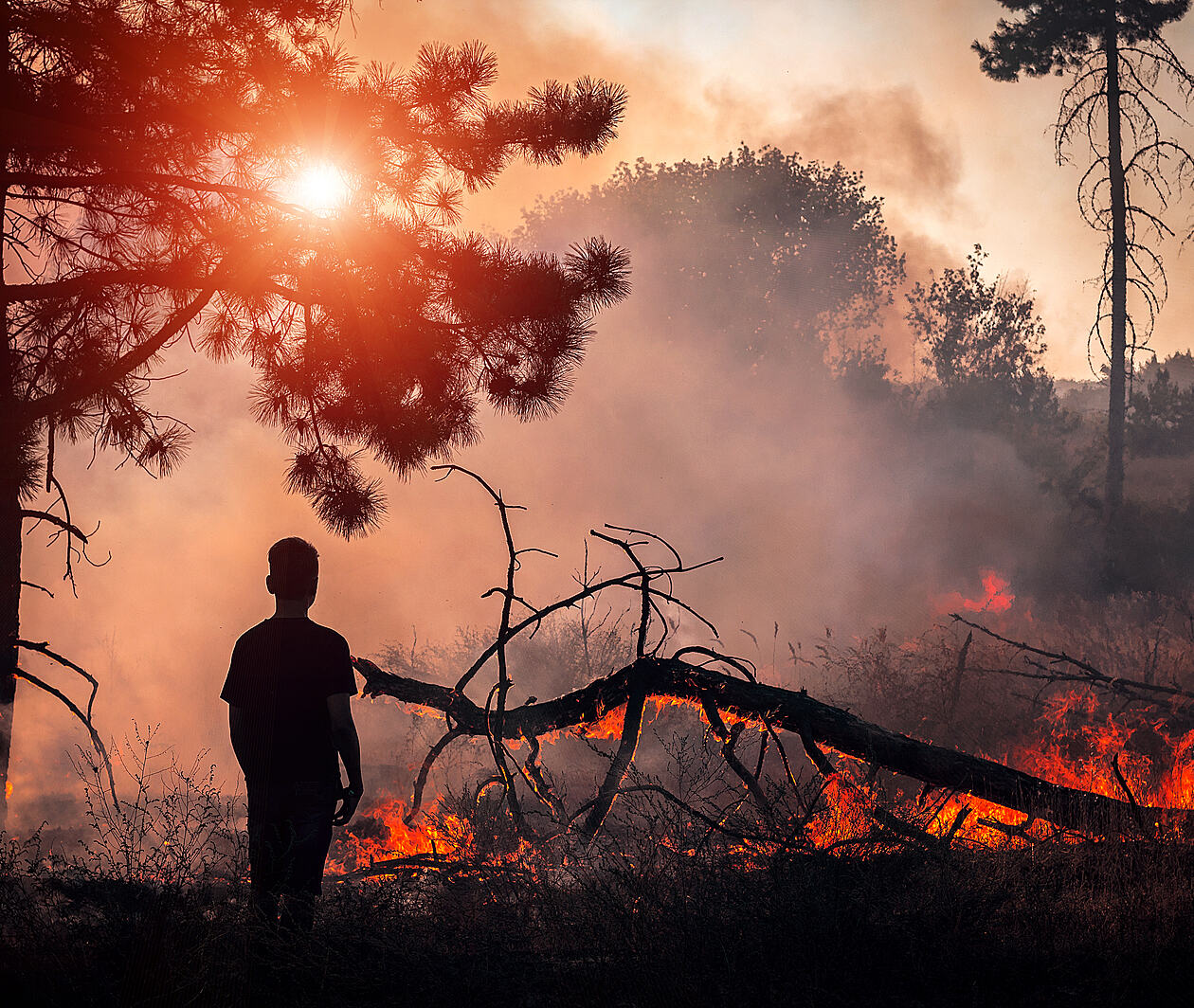Learn strategies in preparing for, responding to, and recovering from bushfire natural disasters from the world's experts.

Duration
3 weeksWeekly study
2 hours100% online
How it worksDigital upgrade
Free
Bushfires: Response, Relief, and Resilience
Discover the challenges and lessons learned from disaster recovery
The increasing impact of climate change is exacerbating the risk factors of natural disasters such as bushfires/wildfires. Challenges and lessons learned from disaster recovery globally suggest that there is a need for individuals and community leaders to understand more about fire disasters.
This three-week course will provide crucial information to individuals and organisations on how to respond to emergencies. It will help you go beyond your current expertise to speed up recovery from humanitarian crises.
By the end of this course, you’ll have the knowledge of bushfire hazards and causes, propensity to spread, impacts, and what we can do to recover quickly.
Explore the causes of bushfires
To understand how to recover from fire disasters, it’s important to first identify the drivers of bushfire risks.
You’ll delve into the causes of bushfires and the mechanisms of bushfire attacks. With this knowledge, you’ll also be able to explore the impact of bushfires from multiple perspectives.
Learn how to reduce vulnerabilities to bushfires
This course will focus on how individuals and communities can reduce their vulnerability to bushfires.
Armed with this knowledge, you’ll understand how to build resilience in the face of future disasters and the benefits of community-led bushfire recovery.
Discover effective coping strategies from The University of Newcastle
To help those affected by bushfires, you’ll identify coping strategies to ensure people are supported in the aftermath of these disasters.
Learning from the experts at The University of Newcastle, you’ll finish the course with the knowledge and skills to help improve your response, relief, and resilience to bushfires.
Syllabus
Week 1
Understanding Bushfire Hazards and Risks
Introduction to this course
You'll be introduced to bushfires and their impact. You'll also find a roadmap to the major themes and ideas that will be explored later in the course.
What factors propel bushfire occurrence and risk?
We will explore the role that fuel loads, weather and landscapes play in ignition of bushfires and the mechanisms by which bushfires spread and attack.
What are the impacts of bushfires?
Together we explore the environmental, social and economic impacts of bushfires
Learning from the past, planning for the future
Here we will examine a case study and look at bushfire planning for households.
End of the week
Finish the week with some reflection and a short quiz to consolidate your learning.
Week 2
Bushfire Relief and Recovery
Disaster Relief
Together we will kick off week 2, and explore strategies for immediate disaster relief.
Case Study: 2019-2020 Australian Bushfire Season
Through this case study we will look at relief and recovery efforts in the immediate aftermath of Australia's summer 19/20 bushfires.
Concluding the week
During these steps we will reflect upon what we've learned this week and take a short quiz.
Week 3
Building Resilience to Bushfire Disasters
Introduction to Resilience
Welcome to week 3, where we will expand on recovery, rebuilding and how to build resilience.
Management Strategies for Resilience
Through these steps we will look at different components that make up an effective strategy for resilience.
Concluding the course
We wrap up the course and reflect upon what we've learnt together.
When would you like to start?
Start straight away and join a global classroom of learners. If the course hasn’t started yet you’ll see the future date listed below.
Available now
Learning on this course
On every step of the course you can meet other learners, share your ideas and join in with active discussions in the comments.
Who is the course for?
This course is designed for individuals and communities looking at gaining an understanding of bushfire risk reduction and resilience.
Who developed the course?
Established
1965Location
Newcastle, AustraliaWorld ranking
Top 180Source: QS World University Rankings 2024
What's included?
The University of Newcastle Australia are offering everyone who joins this course a free digital upgrade, so that you can experience the full benefits of studying online for free. This means that you get:
Learning on FutureLearn
Your learning, your rules
- Courses are split into weeks, activities, and steps to help you keep track of your learning
- Learn through a mix of bite-sized videos, long- and short-form articles, audio, and practical activities
- Stay motivated by using the Progress page to keep track of your step completion and assessment scores
Join a global classroom
- Experience the power of social learning, and get inspired by an international network of learners
- Share ideas with your peers and course educators on every step of the course
- Join the conversation by reading, @ing, liking, bookmarking, and replying to comments from others
Map your progress
- As you work through the course, use notifications and the Progress page to guide your learning
- Whenever you’re ready, mark each step as complete, you’re in control
- Complete 90% of course steps and all of the assessments to earn your certificate
Want to know more about learning on FutureLearn? Using FutureLearn
Learner reviews
Learner reviews cannot be loaded due to your cookie settings. Please and refresh the page to view this content.
Do you know someone who'd love this course? Tell them about it...
You can use the hashtag #UniNewcastle to talk about this course on social media.
More courses you might like
Learners who joined this course have also enjoyed these courses.
Browse more in Nature & Environment and Psychology & Mental Health


